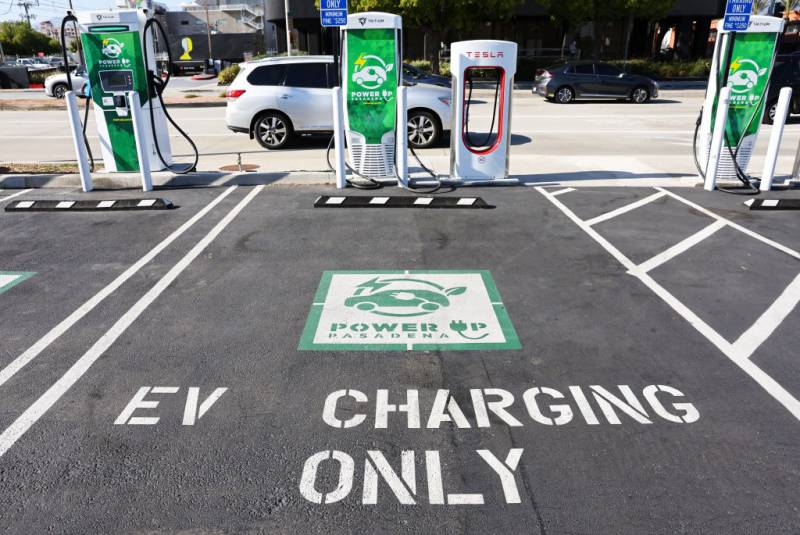But environmental groups who devised Proposition 30 say it's a vital investment in the fight against climate change and bad air quality. If passed, the measure would increase state income taxes — by 1.75% — on Californians who make more than $2 million a year, raising up to an estimated $5 billion annually. The state would be required to spend 80% of that revenue on electric-vehicle rebates and on the installation of charging stations in public places and residences. The remaining funds would go toward wildfire mitigation efforts.
The Coalition for Clean Air, a key backer of the measure, was quick to refute the latest PPIC polling results, insisting in a statement that “independent polls, as well as private polling, have shown dramatically different results than this survey.”
The group noted that the California Democratic Party and the American Lung Association, along with a spate of environmental groups and labor unions, including those representing firefighters, still support the measure and “are working tirelessly in this election for the benefits of clean air, climate action and reducing wildfires that will result from the initiative.”
Newsom’s sway with voters, in spite of the pessimism most Californians have about the economy and the state’s future, is also evident in the governor’s race. With voters already casting ballots, Newsom leads his opponent, state Sen. Brian Dahle, a Lassen County Republican, by a nearly 20-point margin, the PPIC poll found.
“What's really remarkable about the findings of this October survey are that despite the fact that majorities of Californians think that the state is headed in the wrong direction, and an overwhelming majority feel that the nation is headed in the wrong direction, that Newsom leads by a substantial margin,” Baldassare said.
"This is a reflection of the fact that we are very polarized in terms of the electorate in this blue state, with 90% of Democrats saying that, that they're sticking with the Democrat and 90% of Republicans saying that, that they're going to go with the Republican," said Baldassare.
The poll also found that abortion is the most important issue to voters, especially Democrats and independents. And among the 10 most competitive House districts in California, it found that likely voters favor the Democratic candidate over the Republican by a whopping 22% advantage — in spite of the oft-reported headwinds facing Democrats over major issues like inflation, gas prices and crime.
"With a majority of likely voters saying that they approve of President Biden, this is a very different political climate in California than we're seeing nationally," Baldassare noted. "And as a result, in those competitive districts, the Democrats are ahead of the Republicans by a sizable margin."
He added that the high level of importance voters are placing on abortion is also giving Democrats a lift they might not otherwise have in this midterm election.
Consistent with the findings of other recent polls, the PPIC survey showed Propositions 26 and 27 — to legalize sports betting in California — both heading for defeat, with likely voters opposing the measures by 57% and 67% respectively.
“As it turns out … relatively few people are interested in sports gambling in the state,” Baldassare said, noting the high threshold that the well-funded backers of both measures will have to clear to secure passage.

